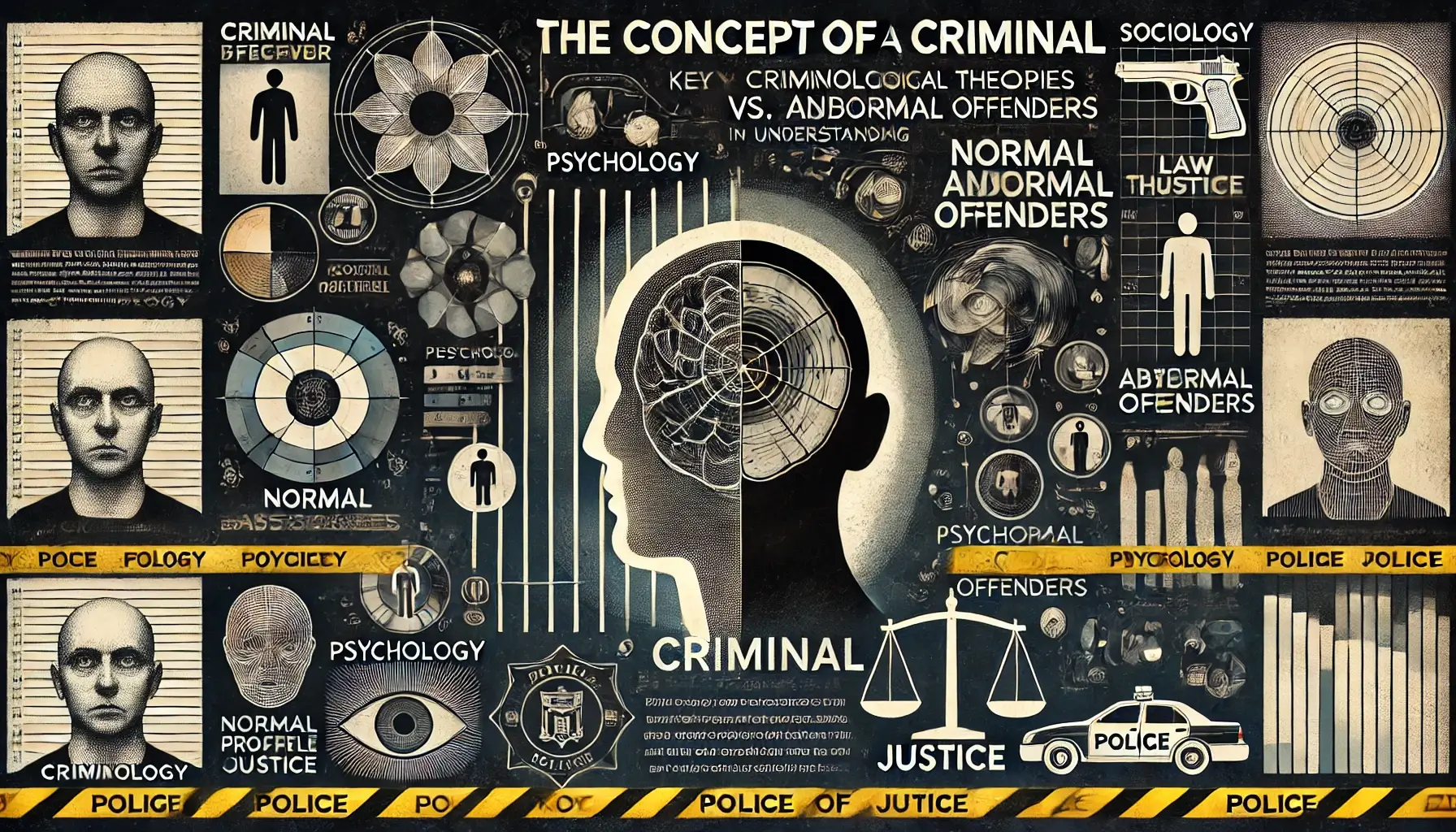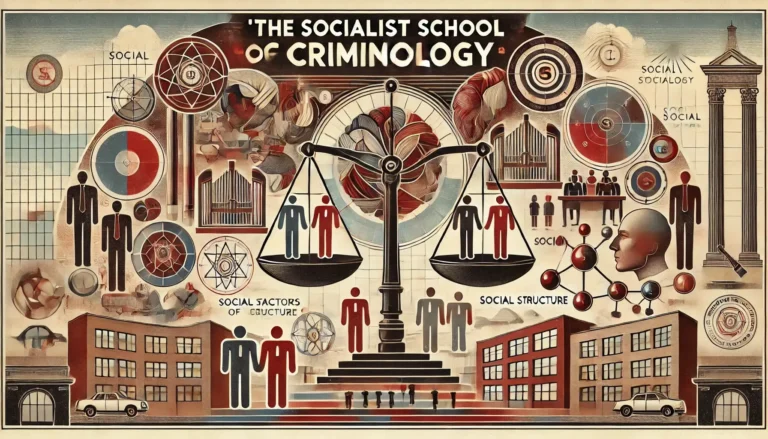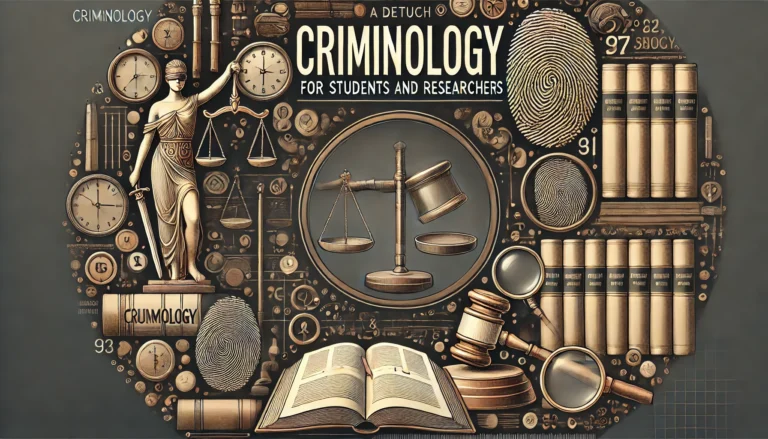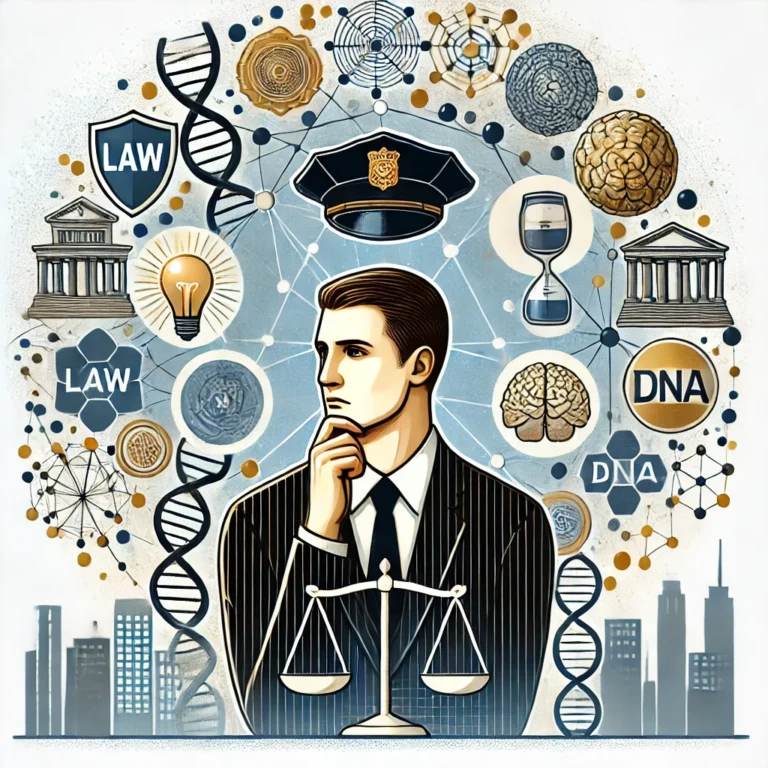The Concept of Criminal in Criminology: Definitions, Stability, and Abnormal Offenders
Introduction: Criminal in Criminology
Criminology, as a multidisciplinary field, seeks to understand the nature, causes, and consequences of criminal behavior. One of the fundamental aspects of criminology is defining and conceptualizing the term “criminal.” This definition is not static; it varies based on legal, sociological, and psychological perspectives. In this article, we will explore the concept of a criminal in criminology, focusing on the stability of criminal status, the condition of abnormal offenders, and the theoretical frameworks that shape our understanding of crime and criminals.
The Definition of a Criminal
A criminal is generally defined as an individual who violates established legal norms and engages in behaviors that are deemed punishable by law. However, this definition can be expanded based on sociological and psychological dimensions. From a sociological perspective, criminality is influenced by social structures, cultural norms, and economic conditions. Psychologically, criminal tendencies may stem from personality disorders, cognitive impairments, or environmental influences.
The Stability of Criminal Status
The notion of stability of criminal status suggests that criminality may persist over time due to various internal and external factors. Some criminologists argue that once an individual engages in criminal behavior, they may continue on this path due to labeling, societal rejection, or inherent personality traits.
Theoretical Perspectives on Criminal Stability
- Labeling Theory: This theory posits that society’s response to criminal behavior reinforces an individual’s criminal identity, making it difficult to reintegrate into society.
- Differential Association Theory: Criminal behavior is learned through interactions with others, meaning that exposure to criminal networks increases the likelihood of continued offenses.
- Routine Activity Theory: Certain individuals may repeatedly engage in crime due to lifestyle choices and opportunities that facilitate criminal activities.
While criminal status can appear stable in some individuals, rehabilitation programs, education, and social support can alter an individual’s trajectory and help them reintegrate into society.

The Condition of Abnormal Offenders
The condition of abnormal offenders refers to individuals whose criminal actions stem from psychological, neurological, or cognitive impairments. These offenders often differ from conventional criminals in terms of motivation, behavior, and legal treatment.
Characteristics of Abnormal Offenders
- Mental Disorders: Some criminals suffer from schizophrenia, bipolar disorder, or antisocial personality disorder, which may contribute to violent or unpredictable behavior.
- Cognitive Impairments: Limited intellectual capacity can affect decision-making, leading to impulsive crimes without a clear understanding of consequences.
- Psychopathy and Sociopathy: Some criminals exhibit a lack of empathy, impulsivity, and manipulative tendencies, making them more prone to repeated offenses.
Legal and Policy Implications
Legal systems worldwide recognize the need for differentiated treatment of abnormal offenders. The insanity defense, for instance, exempts individuals from full legal responsibility if they were unable to distinguish right from wrong at the time of the crime. Additionally, forensic psychiatric institutions provide specialized care for mentally ill offenders.
The Intersection of Criminal Stability and Abnormal Offenders
While stability of criminal status and the condition of abnormal offenders are distinct concepts, they often overlap. Some abnormal offenders demonstrate persistent criminal behavior due to their psychological conditions, while others may commit isolated acts without long-term criminal involvement.
Research in criminology continues to explore how psychological disorders, environmental factors, and legal policies influence both criminal persistence and rehabilitation efforts. Understanding these elements is essential for developing effective crime prevention strategies and legal reforms.
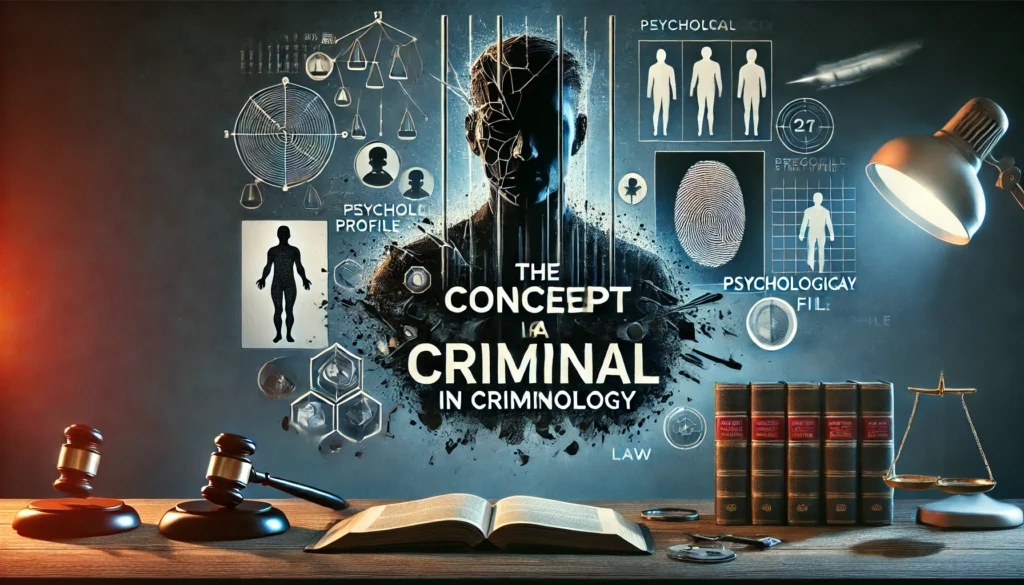
Conclusion
The concept of a criminal in criminology is complex and multidimensional. While legal definitions provide a clear framework, sociological and psychological perspectives add depth to our understanding of criminal behavior. The stability of criminal status highlights how certain individuals may continue their criminal patterns due to societal, personal, and environmental influences. At the same time, the condition of abnormal offenders underscores the need for specialized legal and medical approaches to criminal responsibility. By integrating these perspectives, criminologists and policymakers can develop more effective strategies for crime prevention, rehabilitation, and justice system reforms.

